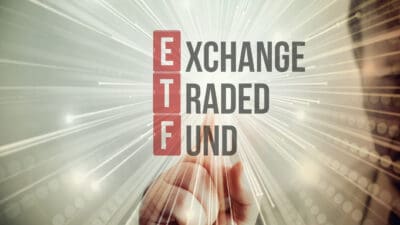I love investing in exchange-traded funds (ETFs). ASX ETFs give us an easy way to gain exposure to an entire index, such as the S&P/ASX 200 Index (ASX: XJO), for one. But they can also provide easy access to sectors or entire markets that are difficult or impossible to invest in directly on the ASX.
I already invested in quite a few ASX ETFs. The Vanguard Australian Share Index ETF (ASX: VAS) is a core component of my portfolio. As is its bolt-on companion, the Vanguard MSCI Australian Small Companies Index ETF (ASX: VSO).
I also invest in more actively managed ETFs like the VanEck Morningstar Wide Moat ETF (ASX: MOAT) for a shot at some market-beating returns.
But there's one ASX ETF out there that I still don't own in my portfolio. My regret over this fact grows by the day.
It's the BetaShares Global Cybersecurity ETF (ASX: HACK). This ASX ETF does pretty much what it says on the tin. It offers investors access to a portfolio of companies from around the world that are all major players in the cybersecurity industry.
The Betashares Global Cybersecurity ETF does pull companies from many different markets. Saying that though, the vast majority of its holdings (79.8% at the last count) are US-based stocks.
They include names like Broadcom, Crowdstrike Holdings, Palo Alto Networks, Fortinet, Okta and Juniper Networks.
Apart from having one of the best ticker codes on the ASX, why should I want to add this ETF to my own portfolio?
Why would I want to HACK my portfolio with this ASX ETF?
Well, there are two factors worth discussing here.
The first is the growing importance of cybersecurity to most facets of modern life. Every few months, it seems like we're reminded of this fact. Major government departments, as well as multiple prominent ASX shares, have been hit by cyberattacks in recent years. Just one successful cyberattack is enough to severely damage a company's reputation. Particularly if sensitive customer information is stolen.
As such, it is my belief that individuals, businesses and governments are all going to be prepared to pay more and more for cybersecurity services that keep their online information secure.
The second is this ASX ETF's past performance.
You should never judge an investment on its past performance alone. However, I think in this case, it quantifies the ever-rising importance of this industry. Over the past five years, HACK units have returned an average of 18.69% per annum (including dividend distributions). Since this ASX ETF's inception in 2016, that return rises to 19.31% per annum.
I wouldn't be too surprised if HACK keeps banging out numbers like this going forward. As such, this ETF is one that I'd be more than happy to buy today, and that I hope to add to my portfolio in the near future.









